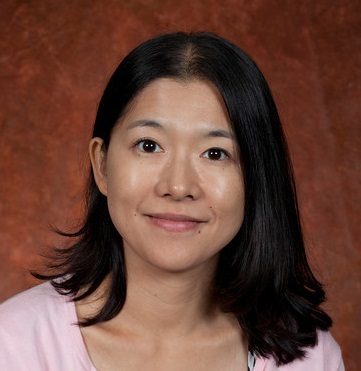June 2024
AERA has announced the new editor team for the American Educational Research Journal (AERJ) for the 2025–2027 volume years. Motoko Akiba (Florida State University) has been appointed as editor-in-chief, and Conra Gist (University of Houston), Fengfeng Ke (Florida State University), Thomas Luschei (Claremont Graduate University), Mariela A. Rodríguez (The University of Texas at San Antonio), and Saran Stewart (University of Connecticut) will serve as coeditors.
The team was appointed by 2024–2025 AERA President Janelle Scott. This appointment culminated an extensive search driven by the AERA Journal Publications Committee. As editors, Akiba et al. will begin receiving new manuscripts on July 1, 2024.
AERJ is AERA’s flagship journal, featuring articles that advance the empirical, theoretical, and methodological understanding of education and learning. It publishes original peer-reviewed analyses that span the field of education research across all subfields and disciplines and all levels of analysis. It also encourages submissions across all levels of education across the life span and all forms of learning. AERJ welcomes submissions of the highest quality, reflecting a wide range of perspectives, topics, contexts, and methods, including interdisciplinary and multidisciplinary work.
 |
Motoko Akiba is a professor in the Department of Educational Leadership and Policy Studies at Florida State University (FSU). Dr. Akiba has research expertise in teacher policy and reform, comparative and international education, teacher professional development and working conditions, and teacher equity. She has published four books: International Handbook of Teacher Quality and Policy; The Global and the Local: Diverse Perspectives in Comparative Education; Teacher Reforms Around the World; and Improving Teacher Quality: The U.S. Teaching Force in Global Context, and many articles and book chapters on teacher policy topics in the U.S. as well as cross-nationally. She is a recipient of the NSF CAREER award, and her research projects have been funded by IES, NSF, and AERA grants. Dr. Akiba served as an associate editor of Educational Researcher from 2012 to 2018 and as the department chair of educational leadership and policy studies at FSU from 2019 to 2021. |
 |
Conra Gist is a professor in the College of Education at the University of Houston. Her research focuses on understanding the various types of programs, policies, and practices that support the development and advancement of underserved teachers in education systems. She is coeditor of the AERA-published Handbook of Research on Teachers of Color and Indigenous Teachers (Gist & Bristol, 2022), a scholarship project that examines the evidence base on ethnoracially diverse educators across 11 research domains of inquiry. She is principal investigator for several research initiatives dedicated to studying the design and implementation of humanizing and sustaining teacher development systems through research-practice partnerships. |
 |
Fengfeng Ke is a professor of educational psychology and learning systems at Florida State University. Dr. Ke conducts research on the design and investigation of technology-supported, learner-adaptive, and enactive learning systems for mathematics, science, and neurodiversity education. She is particularly interested in examining the dynamics governing the relations among learner diversity, the design and implementation of innovative learning systems, individualized or collaborative learning processes, and multifaceted learning outcomes. Her research has resulted in 75 refereed journal articles, two monograph books, and multiple book chapters and refereed conference proceedings. She received the Outstanding Reviewer Award for Educational Technology Research and Development in 2018. |
 |
Thomas Luschei is a professor in the School of Educational Studies at Claremont Graduate University. The primary focus of Dr. Luschei’s research is the impact and availability of educational resources—particularly high-quality teachers—among marginalized children and youth. He has conducted related research in Africa, Asia, and North, Central, and South America, and he has been invited to present his research in Argentina, Colombia, Hong Kong, India, Indonesia, Mexico, and South Korea. In 2013, he taught a graduate-level class and conducted research as a Fulbright Visiting Scholar at the Universidad de los Andes, Bogotá, Colombia. In 2016 he served as a Fulbright Specialist at the Universidad de San Andrés, Buenos Aires, Argentina. |
 |
Mariela A. Rodríguez is a professor in the Department of Educational Leadership and Policy Studies at The University of Texas at San Antonio. Her research focuses on leadership practices that support equitable learning environments for culturally and linguistically diverse students. She has published peer-reviewed journal articles, book chapters, and several coedited books. At the national level, Dr. Rodríguez served as the vice president of AERA’s Division A: Administration, Organization, and Leadership from 2021 to 2024. She is also a past-president of the University Council for Educational Administration (UCEA). In 2021, she received the Jay D. Scribner Mentoring Award through UCEA in recognition of her dedication to mentoring graduate students and emerging scholars. |
 |
Saran Stewart is an associate professor in the Department of Educational Leadership and director for academic affairs at the University of Connecticut. Dr. Stewart has expertise in developing strategies, effective policies, and best practices for creating inclusive and equitable institutional environments for historically marginalized populations in education with a special emphasis on women of color, especially Black women nationally and globally. Her scholarship centers on three core areas: (a) the experiences of racially and ethnically marginalized students, faculty, and staff in education, utilizing intersectionality, critical race theory, and postcolonial, decolonial, (post)diasporic, and critical and inclusive pedagogical theories; (b) international and comparative education with regional foci in postcolonial Caribbean countries and their respective former colonial European countries; and (b) critical methodological approaches, including intersectionality methodology, decolonizing methodology and Caribbean research methodologies. |
|